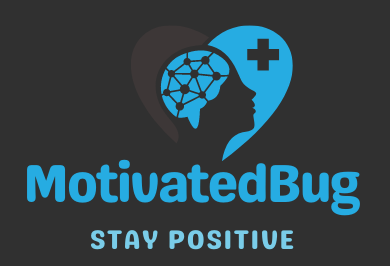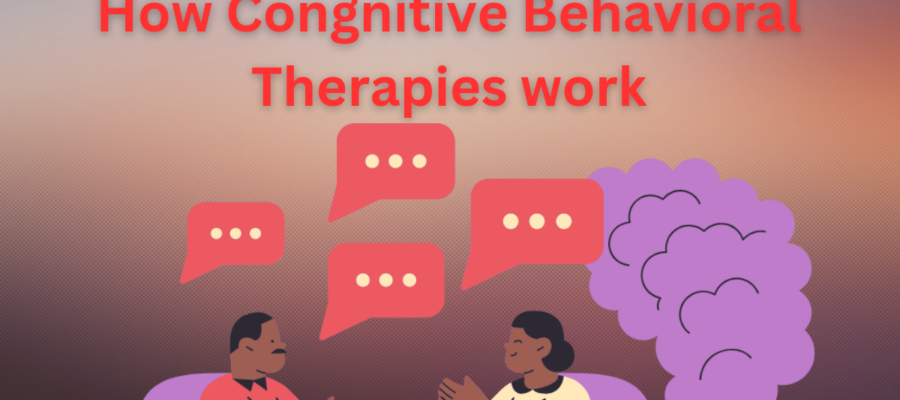Cognitive behavioral therapies(CBT) are unique in the mental health field . So, It is because they provide a methodical, goal-oriented approach to comprehending and changing human behavior. Moreover, CBT is a mainstay of psychotherapy because of its adaptability and track record of success in treating a wide range of psychological issues. It was created by combining cognitive and behavioral theories. Let’s explore what are congnitive behavioral therapies.
How to define Congnitive Behavioral Therapies ( CBT ) and How to measure their importance?
Cognitive behavioral therapies, or CBT, offers a framework for comprehending the relationships between ideas, feelings, and actions. Unlike traditional psychoanalytic techniques, cognitive behavioral therapies (CBT) emphasize the present moment and the ways in which dysfunctional thought patterns affect mental and emotional health. Furthermore, Therapists assist patients in changing their behavior by addressing unhealthy thought patterns.
People are therefore given the ability to change for the better and confront obstacles in life with courage.The Significance of Cognitive Behavioral Therapies (CBT) have demonstrated quantifiable gains in treating psychological problems such depression, anxiety, phobias, and post-traumatic stress disorder (PTSD). Moreover, Long-term, it strengthens people’s resilience and mental health by providing them with useful tools to traverse their inner landscape.
The Top Ten Most Significant Benefits of Incorporating Cognitive Behavioral Therapies
Let us see how congnitive behavioral therapies are making our life worth living. Following are the effective results of applying these therapies.
1. Recognizing Cognitive Errors

The fundamental skill of cognitive behavioral therapies are the recognition and correction of one’s own defective thought processes. Particularly, it focuses on simplistic or catastrophic thinking. Also, The aim of therapists who assist clients in confronting these ideas is to encourage a more realistic and balanced viewpoint. So, a person may get a chance to think in a different way. In the result, his or her brain develops another positive outlook.
2. Behavioral Experiments
Patients undergoing Cognitive Behavioral Therapies (CBT) participate in organized activities designed to gauge their behavior. Furthermore, by challenging and altering dysfunctional patterns of thinking with evidence-based techniques, people are able to test and modify their beliefs in real-life scenarios. So, they get a way to test their beliefs and ideas practically.
3. CBT includes graded exposure for anxiety patients
People can gradually overcome their anxieties with the use of techniques like systematic desensitization. So, it includes exposing patients to terrifying stimuli one at a time while being closely monitored. Meanwhile, they experience lesser stress.
4. Mindfulness Techniques mainly consist of Congnitive Behavioral Therapies

A major component of Cognitive Behavioral Therapy (CBT) is the application of mindfulness techniques. It promotes introspection and the impartial assessment of emotional and mental states. Moreover, People can become more adept at staying in the present moment. Also, they experience less reactiveness by practicing techniques like mindfulness meditation.
5. Activity scheduling for management in congnitive behavioral therapies
CBT suggests using activity scheduling to help people organize their daily schedules. This proactive strategy helps overcome feelings of apathy and bad mood. It will happen by fostering a sense of success through organized, meaningful activity. A sense of completion becomes the genuine cause of happiness.
6.Understanding and combating negativity is essential for Congnitive Behavioral Therapies
Most of the time an ingrained thought patterns is a crucial component of cognitive behavioral therapy (CBT). It is a counselor’s responsibility to assist their client in replacing unhealthy thought patterns with more beneficial ones. The patient is said to have a positive outlook of the things to perceive situations differently.
7. Stress-Reduction Techniques

Cognitive behavioral therapies (CBT) give people techniques to protect themselves from stress. It empowers them to deal with challenging circumstances in a resilient manner. This also includes instructing people on how to handle stressful circumstances and control the physical manifestations of stress and anxiety.
8. Experience Problem Solving Attitude
CBT emphasizes the need of mastering efficient problem-solving techniques. Clients who learn to assess their circumstances and find answers. In consequence, they implement these methods. So, it develops a sense of mastery and the capacity to meet obstacles head-on.
9. Relaxation techniques in congnitive behavioral therapies

To lessen the physiological signs of stress and anxiety, cognitive behavioral therapy (CBT) includes relaxation techniques. To help one feel more rooted and at ease. Moreover, these techniques could involve deep breathing, progressive muscular relaxation, or guided imagery.
10. Assignments for Homework
Cognitive behavioral therapy (CBT) includes homework in addition to therapy sessions. It is important to consistently practice and apply cognitive behavioral therapy (CBT) procedures to make sure clients keep improving in between sessions. Furthermore, This one to one sessions make a friendly environment for the client. It results in developing kindness and generosity.
FAQs
Q1. When will CBT start to work for me?
Brief CBT is popular; after 12 to 16 sessions, most patients report significant gains. The regulated and goal-oriented nature of cognitive behavioral therapies (CBT) are one of the reasons they are effective.
Q2. Does CBT, or cognitive behavioral treatment, effectively treat all mental illnesses?
Although cognitive behavioral therapy (CBT) has demonstrated efficacy in treating a diverse range of disorders. It’s appropriateness for a particular individual may vary. Therapists might take into account various therapy modalities based on the individual needs and preferences of their clients.
Q3. Is it possible to oversee CBT independently?
While some congnitive behavioral therapies or components can be taught through self-help programs, professional advice is advised for customized applications of CBT. A certified therapist can offer tailored tactics and support to get the best outcomes possible.
Final Words
In conclusion, cognitive behavioral therapies are a cutting-edge and successful method of providing mental health treatments. Cognitive behavioral therapy (CBT) emphasizes the connection between thoughts, emotions, and behaviors, giving people the ability to take charge of their mental health. To guarantee a comprehensive approach to mental health issues, the ten amazing ways CBT techniques offer a thorough examination of its flexible protocols. Despite its dynamic character, cognitive behavioral therapies (CBT) are mainstay of modern psychotherapy because it regularly fosters resilience and good development.


One comment
Comments are closed.